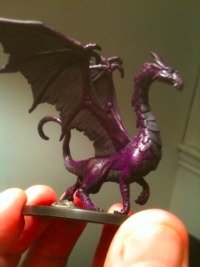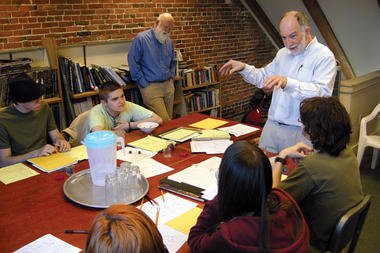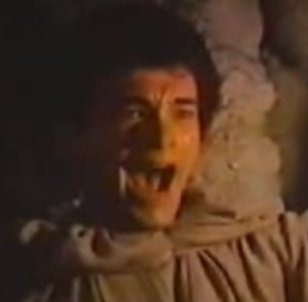Real-Life Role-Playing
Real-Life Role-Playing
 When Max Delaney came to rural Maine 13 years ago, his itinerant family moved from town to town, school to school. With few social connections, he felt isolated. Like an outsider.
When Max Delaney came to rural Maine 13 years ago, his itinerant family moved from town to town, school to school. With few social connections, he felt isolated. Like an outsider.
"It was hard for me to find people," says Mr. Delaney, now 21. "I was searching for a community." His academic performance suffered, and he didn't get along with his teachers. "I did not do well with authority in school."
Then, the year his family arrived in Belfast, a coastal town of some 6,300 on Penobscot Bay, he discovered The Game Loft and finally found his tribe.
Similar to other youth-development organizations such as Outward Bound or Scouting, The Game Loft also fosters risk-taking, leadership, and camarad erie. But for kids who find the football gridiron to be a foreign world, The Game Loft immerses them in a different sort of team sport.
Via table-top role-playing games like Dungeons & Dragons (D&D), Game Loft members play characters armed not with football padding and hockey sticks but chain mail, broadswords, light sabers, and magic spells. Working together, they charge onto battlefields and explore underground dungeons, seeking valor in these imaginary realms.
"I took to [role-playing] immediately," Delaney says. He joined as a member of The Game Loft, then started volunteering as a staff member, and finally became an employee. Along the way, the games he played built up his character in the real world.
"Killing dragons is a challenge," says Ray Esta brook, The Game Loft's codirector and cofounder. His center connects dragon-slaying to the challenges life throws at you. Via gaming, kids test out "roles," but in a safe, nonschool environment, in order to become functioning adults in society – connected, compassionate, and caring. "Good things happen to kids who game," he says.
 Cofounder Ray Estabrook (standing) leads gamers in playing '1968: Gone but Not Forgotten,' a game he and his wife and co-founder Patricia created.
Cofounder Ray Estabrook (standing) leads gamers in playing '1968: Gone but Not Forgotten,' a game he and his wife and co-founder Patricia created.
"I was [at The Game Loft] to socialize with kids who had mutual interest not only in games but conversation," Delaney says. "It was a place to channel a lot of curiosity." Moreover, he was able to interact with kids of all ages, as well as adults, who treated him as an equal. "The level of respect we got at The Game Loft was different than [at] school."
The Game Loft addresses another concern: the proliferation of video games. In an age when parents worry about the potentially isolating and addictive effects of computer and console-based games such as World of Warcraft and Halo, The Game Loft offers an antidote. No electronic games are allowed within its doors. Rather, kids play games
like D&D and Star Wars Miniatures face to face, with pencils and paper and plastic figurines, not with pixels and high-bandwidth Internet connections. A role-playing game is participatory, not passive. The kids don't absorb prefab plots from movies, books, or video games, but tell their own stories of their characters' exploits. Players around a
gaming table interact, completing quests and, yes, killing monsters who stand between them and their booty. In their imaginations, they are linked to humankind's narrativemaking past of heroic ballads and campfire tales of derring-do.
Each weekday at about 2 p.m., between 15 and 35 kids ages 6 to 18 (about one-quarter of them girls) break down the front door, pour up the stairs, and burst into The Game Loft's "Great Hall." The adjacent kitchen serves up hot food, sometimes the only nutritionally sound meal kids might get all day. They grab a brownie or bowl of chicken soup, separate into small groups (usually fewer than eight players) and head to the various rooms that host the game sessions. Once settled and fed, the kids quickly get down to the business of role-playing as elves and wizards, or plotting strategy as Jedi knights and military commanders.
But an unsupervised, free-for-all role-playing game can be just as cruel as a playground game of dodgeball. That's why game moderators like Tom Foster structure "intentional games" with outcomes that reinforce the center's principles such as fair play and cooperation.
In one room, called "The Savage Room" and decorated with maps and a suit of armor, Mr. Foster, who has been playing D&D since the 1970s, ran a multiweek, modified D&D game. He schooled his 12-to-15-year-old protégés in surviving the elaborate dungeon he'd designed and stocked with traps and monsters.
But when the adventuring party – "a group of misfits," as Foster affectionately called them – stepped on a tripwire, a cage opened that unleashed a bloodthirsty rhino.
Hands shot up, offering solutions. "I'm going to hide!" one girl shouted. "I've got an epic plan!" blurted another. "I want to jump on its back!" said another, whose character, inexplicably, took his clothes off and, via magic, turned invisible.
"Hold it, everyone! Focus," Foster said. "You've got a very large animal with three horns after you and you're arguing among yourselves." Eventually, they tricked the rhino into running into a vault and slammed the door. Success.
"Here, the idea is to get them from playing a game to solving problems," Foster later says. "To integrate."
Still, parents can be skeptical of the pedagogical goals. Some think their kids are just goofing off, says Kali Rocheleau, director of volunteers and membership. "But once we get them in the door, they have that 'aha' moment."
Sian Evans, whose two sons are Game Loft regulars, was one of those leery parents. She was no fan of video games, either, and wondered if fantasy games were too violent. But once she observed her sons in action, she noticed them begin to pass not only Pokémon cards back and forth across the gaming table, but also concepts.
"When you're playing D&D, you're talking about ideas," Ms. Evans says. "It's not games, it's life skills." She recalls a time that Taran, her 11-year-old, came home bubbling with enthusiasm about what had happened that day in the game: "Oh Mom, I got turned into a dwarf!"
"This is so special to him because he's active, he's part of the story," Evans says. "[Taran] would like to put a bunk bed in and live [at the Loft]."
The Game Loft's tools and settings aren't all fantasy. One custom-made game, 1968: Gone but Not Forgotten, re-creates life in a galaxy not so far, far away: Maine. "It's role-playing in an imaginary county, but touching on real history," says Patricia Estabrook.
"Our Maine history game is Dungeons & Dragons without the dungeons or the dragons," Ray Estabrook adds.
Games that let kids inhabit other selves from local history give them a stake in their own community. So do service projects that ask teens to take a break from battling orcs to give back. Townspeople see teens engaged in work like shoveling sidewalks for the elderly, not loitering downtown.
"It's important for youth to be involved in the community, not stuck behind some walled high school perimeter," Ray says.
For those at risk of dropping out of high school, The Game Loft can provide empowerment, accountability, and a way back in. Take Damion Saucier, 17, who felt oppressed by his school's educational system. "Me and school never clicked," Damion says. But at The Game Loft, he found "a big family," learned how to work with others, and also learned the necessity of obeying authority – sometimes. Now he's recommitted to school and volunteering as a game-session leader, teaching next-generation geeks. They look up to him. "You are like a god to them," he says. "It gives you a sense of helping these kids be social, and they're having fun."
The Game Loft has managed to turn the lingering "gaming is antisocial" stereotype on its head.
As for Max Delaney, just this March, after 11 years, he left his job at The Game Loft. The small-town kid moved to the faraway realm of Portland, Maine. He felt a little nervous, but also confident. After all, he knew how to role-play.
"We role-play in all situations in our life. It's unconscious," Delaney says. A job interview is really just role-playing, he notes, and games are a gateway to interaction. "We want to try to be someone else for just a little while, to experiment with it, to see who we can
be and what others are."
Like a character in a D&D game, who outfits himself before an adventure, then gains experience and grows in mastery, Delaney is well prepared for his next adventure – be it a job in social services, teaching, or wherever his quest may take him.
Ethan Gilsdorf is the author of Fantasy Freaks and Gaming Geeks: An
Epic Quest for Reality Among Role Players, Online Gamers, and Other
Dwellers of Imaginary Realms, which comes out in paperback in
September. Contact him through his website, www.ethangilsdorf.com
The Game Loft fosters risk-taking, leadership, and camaraderie.
 I think it's easy to forget about "healthy" aspects of gaming and fantasy because (as I have written before) the media loves sensational stories about people taking games and other fantasy experiences "too far." Much of this has been exaggerated, and its roots delve back to the 1980s and Pat Pulling's Bothered About Dungeons and Dragons (BADD) campaign to ban D&D (because, in her estimation, D&D was responsible for her son's suicide). In another so-called gaming tragedy, the famous "steam tunnel incident" supposedly led to James Dallas Egbert III's disappearance from Michigan State University in 1979, after getting lost in the campus's tunnels while playing a live-action role-playing game. Rumor was, this led to his death. (In fact, Egbert had simply fled campus, and sadly killed himself a year later.) The death was unconnected to D&D: the kid was depressed, suffered from pressure about school performance from his parents, and had a drug habit. Nonetheless, a movie was made starring Tom Hanks, called Mazes and Monsters (based on these events, itself adapted from a quickie novel of the same name). Forever after, D&D and its ilk was linked to abnormal behavior.
I think it's easy to forget about "healthy" aspects of gaming and fantasy because (as I have written before) the media loves sensational stories about people taking games and other fantasy experiences "too far." Much of this has been exaggerated, and its roots delve back to the 1980s and Pat Pulling's Bothered About Dungeons and Dragons (BADD) campaign to ban D&D (because, in her estimation, D&D was responsible for her son's suicide). In another so-called gaming tragedy, the famous "steam tunnel incident" supposedly led to James Dallas Egbert III's disappearance from Michigan State University in 1979, after getting lost in the campus's tunnels while playing a live-action role-playing game. Rumor was, this led to his death. (In fact, Egbert had simply fled campus, and sadly killed himself a year later.) The death was unconnected to D&D: the kid was depressed, suffered from pressure about school performance from his parents, and had a drug habit. Nonetheless, a movie was made starring Tom Hanks, called Mazes and Monsters (based on these events, itself adapted from a quickie novel of the same name). Forever after, D&D and its ilk was linked to abnormal behavior.
In the past couple of years, more sensationalized stories have appeared about addicted gamers in Korea and China, about cold-turkey boot camps to cure Internet addicts, and about a gamer who died from exhaustion at his keyboard. Stories of flirting and affairs (often in character, in role-playing game worlds) have also bopped around the blogosphere. A recent movement sees the Harry Potter phenomenon as dangerous and satanic; in the words of Chick Publications and its comic book tract "The Nervous Witch," "the Potter books open a doorway that will put untold millions of kids into hell." It's exactly what D&D faced as a pop culture fad when I was a teen in the 1980s. D&D was going to corrupt the minds of teenagers or turn them into Satan worshippers. Remember Jack Chick's "Dark Dungeons"? Hilarious, if it wasn't so sad and misinformed.
All these fears --- D&D as dangerous --- all seem quaint today. No one takes that threat seriously anymore, except perhaps the fundamentalist wingnuts.
Still, stereotypes and prejudices against gaming and fantasy persist. Most people don't realize that for 99% of players and fans, these activities are integrated in healthy ways into the lives or normal people, and they provide an essential community, rites of passage, ethics and values, just like other clubs and hobbies.
But funny thing: gaming does even more. It lets us try out new roles. There's personality development that arises in a role-playing situation. And if you're a geeky shy kid like I was back in the day, role-playing games can be a necessary tool for socialization.
 I recently discovered a teen center --- the only one like it in the nation --- that uses table-top (not video) games to teach these exact life skills. Based in the small town of Belfast, Maine, The Game Loft fosters risk-taking, leadership, and camaraderie. Especially for kids who find the football gridiron to be a foreign world, The Game Loft immerses them in a different sort of team sport, where they can find achievement and connectedness.
I recently discovered a teen center --- the only one like it in the nation --- that uses table-top (not video) games to teach these exact life skills. Based in the small town of Belfast, Maine, The Game Loft fosters risk-taking, leadership, and camaraderie. Especially for kids who find the football gridiron to be a foreign world, The Game Loft immerses them in a different sort of team sport, where they can find achievement and connectedness.
As I wrote in a recent article for the Christian Science Monitor ("Role-playing games pull reluctant school kids into a supportive crowd"), Game Loft members play characters armed not with football padding and hockey sticks but chain mail, broadswords, light sabers, and magic spells. Working together, they charge onto battlefields and explore underground dungeons, seeking valor in these imaginary realms. Re-enactment games that let kids inhabit other selves from local history give them a stake in their own community. For those at risk of dropping out of high school, The Game Loft can provide empowerment, accountability, and a way back in.
As founders Patricia and Ray Estabrook put it, "At the Loft we know that good things happen to kids through games and The Loft kids can identify these good outcomes with ease. Our games program is designed to encourage these good outcomes."
Too bad the Game Loft hadn't existed back in the days of Mazes and Monsters, and James Dallas Egbert III.